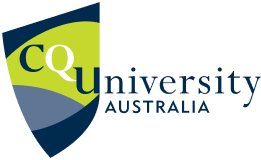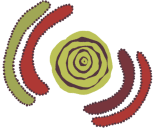Animal-assisted therapy research wins Three Minute Thesis competition
Research on how animals can help humans overcome mental health issues has won the CQUniversity round of the annual Three Minute Thesis (3MT) competition.
Conducted by Melbourne-based researcher Vijay Rawat' the pitch titled Helping humans heal: The effectiveness of animal-assisted therapy for mental health wowed the judges to take out the top spot.
'Animal-assisted therapy is a non-conventional intervention which could have positive benefits for people experiencing mental health issues'' Mr Rawat explained.
'Even though it's already used' we actually don't know a lot about its effectiveness. My study involves reviewing over a decade of research to answer questions such as 'how effective is animal-assisted therapy for improving mental health?' and 'who is most likely to benefit from this type of therapy?''
It was the first time for Mr Rawat to compete in a 3MT.
'I wasn't intending to enter the 3MT' but when the lockdown extension here in Melbourne happened at about the same time that the call for entries opened' I decided to prepare an entry in an attempt to keep myself from going down the lockdown-blues rabbit hole'' he explained.
'It worked out better than expected and I'd like to acknowledge Dr Alex Russell and Professor Matthew Browne for their patience' incredibly helpful feedback' and assistance with preparing my pitch.'
Mr Rawat said his interest in the research topic was initially sparked from a personal experience.
'Even before I started my research degree I attended an animal-therapy conference just to learn more about this space'' he explained.
'My decision to pursue research in this area was driven by two things. At the conference' speakers included military veterans and people who had experienced trauma – they spoke about how other 'traditional' forms of therapy were ineffective' and how incorporating animals was an integral part of their recovery. This was particularly profound and I was moved from hearing their stories.
'Secondly' the content of the next set of speakers (academics' researchers) at the conference all had one thing in common – they all emphasised that the evidence-base in the field was weak' and higher-quality research was needed.
'When I left the conference' I'd already decided I wanted to do something in this space' so I got in touch with my supervisors to discuss the proposal' and the rest is history.'
Mr Rawat won a $2 000 support grant and will now represent CQUniversity (virtually) at the Asia-Pacific semi-final on September 27.
'It honestly feels a bit surreal to be the one representing CQUniversity to take on the rest of the world'' he said.
'I've had to pinch myself a few times.'
The grand-final will be held on October 11' with the overall winner announced on October 20.
Mr Rawat said the 3MT competition was a great learning tool to improve research communication skills.
'Simplifying your research sounds deceptively easy. But entering the competition forced me to take the technical concepts/jargon/terminology out of my research and explain it using plain language. I suggest all research candidates enter the competition if they're able to.'
The 3MT runner-up was Megan Crowther for her pitch Getting good sleep: Improving mental health outcomes in Australian paramedics while the People's Choice Award went to Roksana Tumpa for Many birds with one stone: group-based assessments in higher education.
The parallel Visual Your Thesis (VYT) competition' which challenges researchers to present a 60-second audio-visual display' was also held recently.
CQU researcher Holly Hosking won VYT with her pitch titled Development of a cell-based assay to predict pathophysiologies; focusing on cancer susceptibility.
The VYT People's Choice Award went to Georgia Tuckwell for her pitch titled The impact of physical activity on alertness during the commute home.


